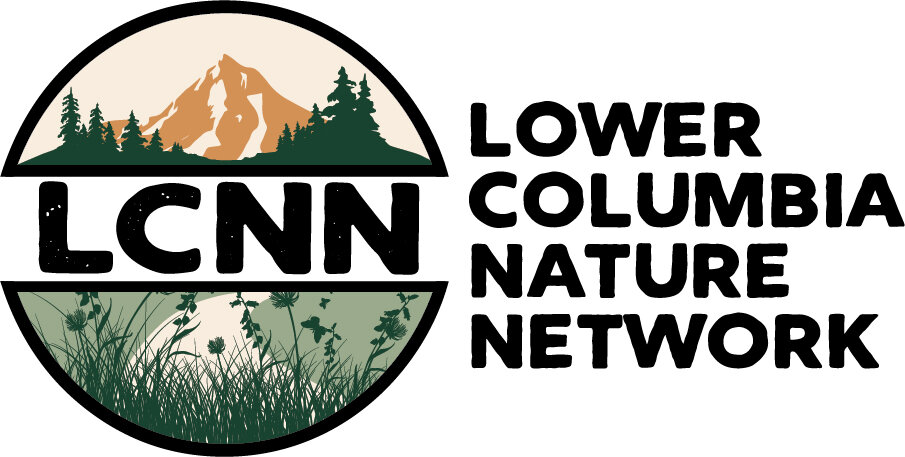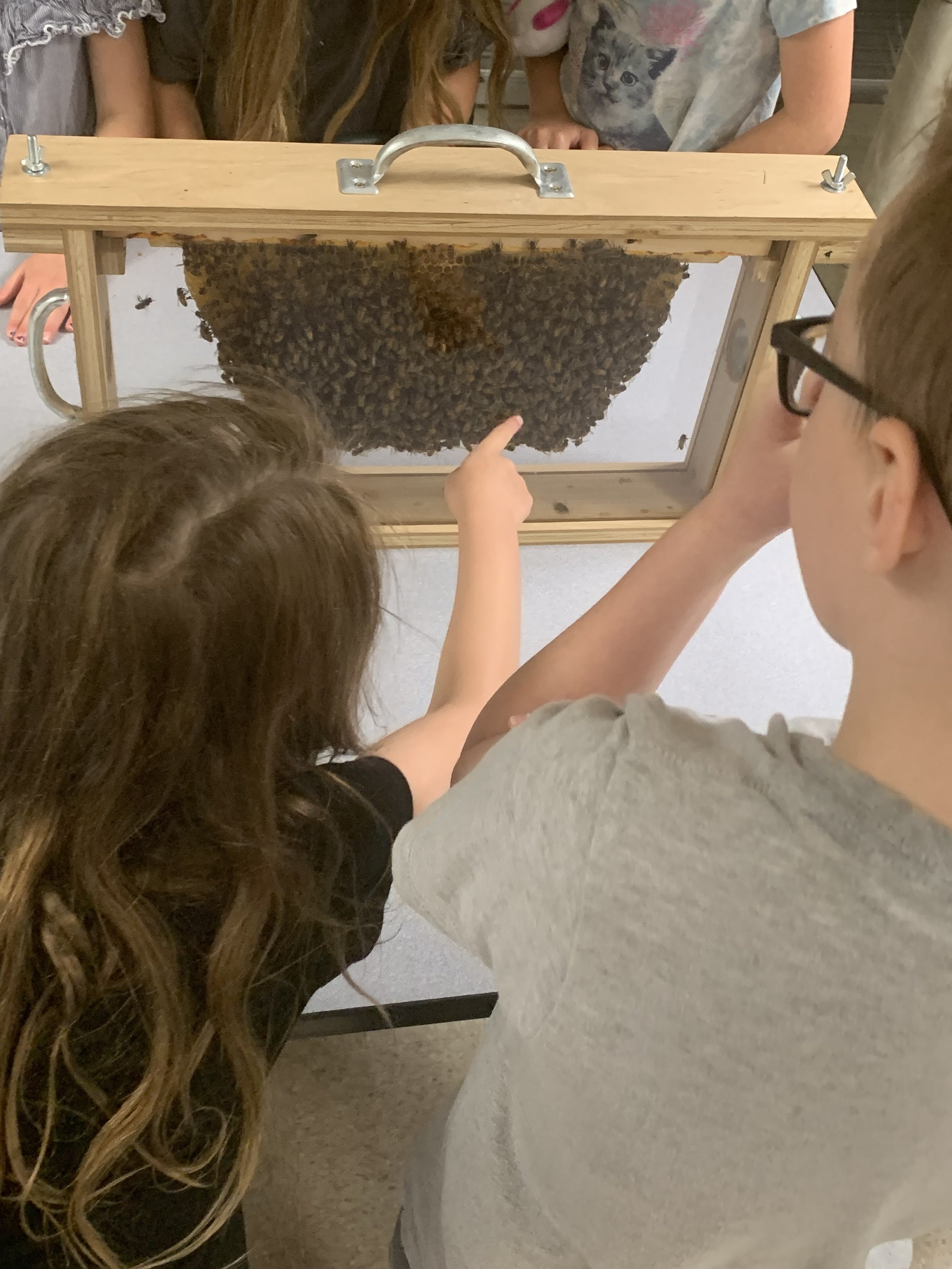Partner Spotlight: Vancouver Bee Project
Information submitted from Kyle Roslund of Vancouver Bee Project. He can be reached here
Vancouver Bee Project’s (VBP) mission is to educate and advocate for pollinators and native plants in Vancouver and Clark County. I started beekeeping about 5 years ago with my husband and during that time we’ve been taking observation hives into Vancouver schools and day camps to educate on pollinators. I, along with a small group of folks in the Rose Village neighborhood, started VBP to help others see what can be possible in our human spaces (and to maybe rethink what those spaces should look like) and with a recognition that Vancouver could do more to support pollinators. I personally had wanted something like VBP to exist in Vancouver for years, but it just never happened. And then in the fall of 2021 I broke my foot in a random accident at home and found myself with some time to focus on the problem at hand and VBP was formulated.
VBP focuses on education, advocacy and habitat. Currently, we are advocating for the City of Vancouver to become a Bee City USA affiliate, a Xerces Society program, where the city reduces/ceases pesticide and herbicide use, provides education opportunities, promotes habitat creation, and promotes the affiliation. We have a committee meeting quarterly where we discuss opportunities, have an educational presentation and some hands-on activities. This meeting is a good opportunity to hear about what opportunities VBP and our partners have coming up and to meet others interested in bees. Many folks have been doing great and wonderful things in the region and we’ve really seen that VBP has offered an opportunity for them to communicate and see what others in the area are doing – and we’d love to continue facilitating that conversation.
VPB has a #GrowNativeVancouver to raise awareness for planting native (or as native as possible) plants by offering free native prairie seed mix to folks wanting to plant natives. And in my opinion, wildflowers are the gateway native plant. They are easy to grow, very approachable and a flowering wildflower covered in bees always puts a smile on people’s faces. From patio pots to parking strip meadows we really just hope to show folks what other things these urban spaces can be used for and hopefully create some beneficial pollinator habitat and forage in the process. Plus everyone loves free native seed.
Our hopes and dreams for the future of VBP includes an outdoor bee education space and native garden (think planned bee garden with a structure around a honey bee hive with nearby meadow opportunities) in a high school setting where the bee education space is utilized as an educational destination for the public and other schools. Our work with schools has been so critical to our outreach and we were lucky enough to get invited to talk with students at Washington Elementary in Rose Village. Washington is in my backyard and is a really wonderful school that supports an area in Vancouver with some the largest BIPOC populations as well as some of the lowest income families in the city. We are also so happy to see excited kids see bees up close for the first time through the window of one of our observation hives. We hope to continue our relationship with Washington and other schools in Vancouver in the future.
If folks are looking for ways to get involved with VBP, the best way is to sign up for our email list and newsletter or follow us on Instagram to stay up to date with opportunities. We also have a Vancouver Bee City USA committee meeting coming up January 8 where we will be talking about Integrated Pest Management and will have an educational spotlight on native plants provided by folks from the Watershed Alliance of Southwest Washington highlighting what plants to look for and where to get them. We will also talk about the Backyard Habitat Certification program. In the spring we will have more hands on activities to get folks ready for mason bee season and some other surprises as well.
Check out www.vancouverbeeproject.org






